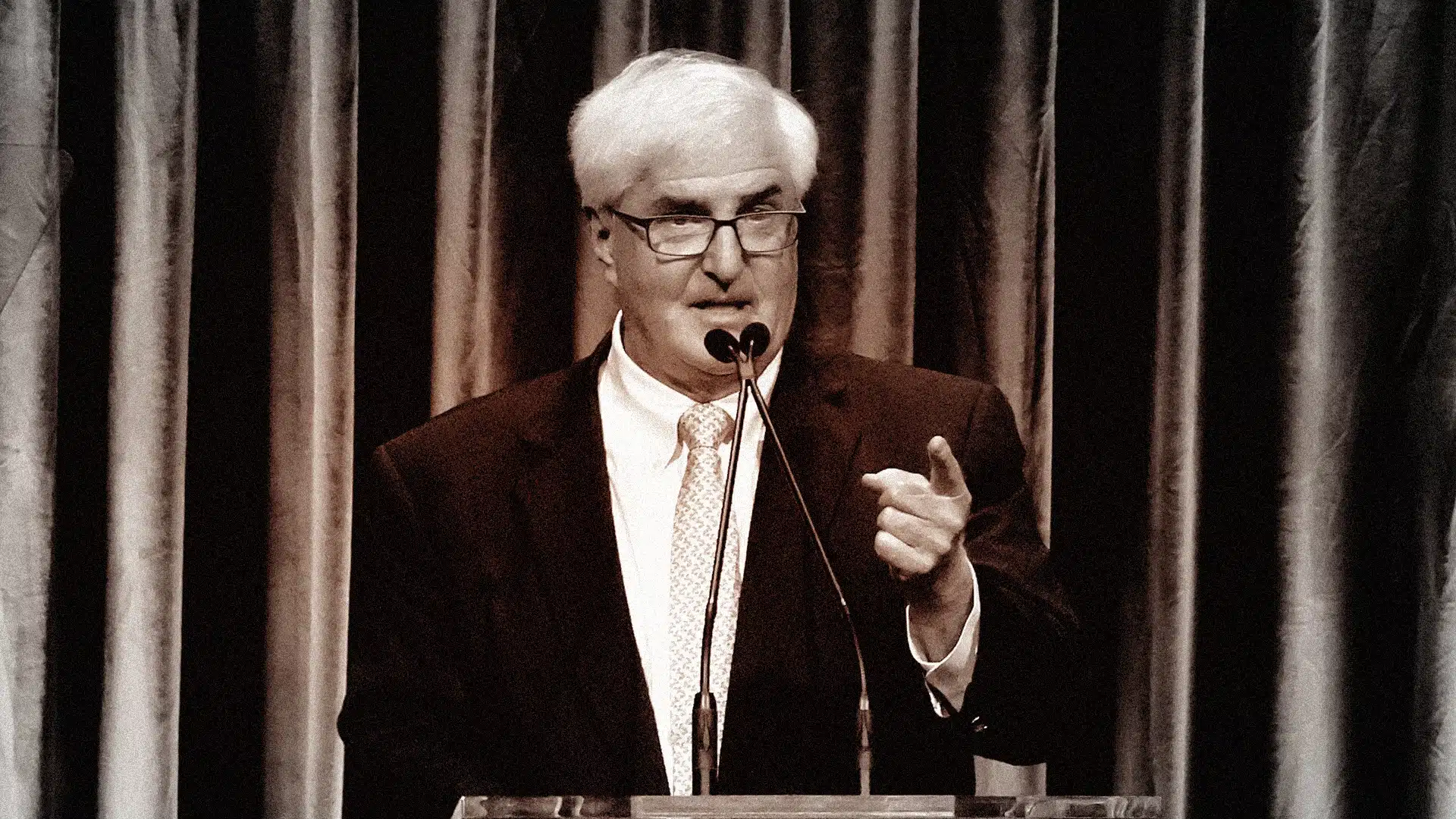A well-funded crypto-focused PAC is facing internal disagreements that may result in one of its mega-donors parting ways with the initiative amid the organization’s decision to oppose a Democratic Senator.
Ron Conway, a billionaire venture capitalist, announced that he would retire his support to Fairshake, a Super PAC created by crypto industry titans to push for a comprehensive regulatory framework for the sector.
Conway’s decision comes after the PAC decided to unseat Senator Sherrod Brown, who represents the Democrats in the state of Ohio, during the upcoming November election.
In an email sent to other donors and picked up by Politico, Conway said that he had donated $500,000 to Fairshake last year along with other tech industry titans. He claims that he strongly disagrees with this strategy and that he was not consulted at any point.
Conway Blasts Fairshake Donors for Opposing a Democratic Senator
Conway alleges that targeting Senator Brown would undermine the efforts of the Senate Majority Leader, Chuck Summer, to pass new crypto-supportive legislation in Congress before the year ends.
“$12M to Brown’s opponent when Sen Schumer is doing his best to get a bill passed in the lame duck … You all know that is [a] ‘slap in the face’ to Sen Schumer,” he wrote.
He went on to blast his fellow donors and the leaders of Fairshake and deemed the move a “slap in the face” to both Schumer and himself.
Conway further expressed frustration as he was not informed of this decision, stating: “NOT ONE PERSON BOTHERED TO GIVE ME A HEADS UP THAT YOU WERE DOINIG [sic] THIS.”
Chuck Schumer is a vocal supporter of crypto regulation as he has acknowledged that digital assets are more than a fad and, thus, they need to be appropriately regulated.
Also read: XRP Spikes After Longstanding SEC Case Ends With $125M Fine
“My goal when it comes to crypto regulation is this: I want to bring members on both sides of the aisle here in the Senate together … so we can pass sensible legislation that helps the United States maintain its status as the most innovative country in the world,” he recently commented.
At @svangel we spend our days looking for, investing in, and supporting founders who are building the future. We are pro-business, pro-American Dream, pro-entrepreneurship, and pro-technological progress. In this pivotal moment, we are united in our support for Vice President… pic.twitter.com/HIIkEDTDOb
— Ron Conway (@RonConway) July 31, 2024
Conway is an outright supporter of Kamala Harris and the Democrats for the upcoming election, which also explains his disagreement with the latest decision from Fairshake.
Democrats are Currently Perceived as Hostile to the Crypto Sector
Democrats have been trying to make amends with the crypto sector as the size of their political influence via financial donations has been increasing.
The Biden administration has been seen as relatively hostile toward the sector as the SEC has opted to prosecute dozens of companies despite not pushing forward any comprehensive regulations that help these businesses thrive in America.
One of the most notable Democratic opponents is no other than the head of the SEC, Gary Gensler, who has stated multiple times that he is against the sector. “We don’t need more digital currency,” Gensler commented last year, arguing that the US already had one digital currency – the US dollar.
“The crypto industry’s record of failures, frauds, and bankruptcies is not because we don’t have rules or because the rules are unclear. It’s because many players in the crypto industry don’t play by the rules,” Gensler stressed on another occasion.
He added: “We should make the policy choice to protect the investing public over facilitating business models of noncompliant firms.”
What is a Fairshake and What are Its Goals?
Fairshake is a super PAC dedicated to supporting candidates who favor crypto-friendly policies. It has quickly become one of the best-funded political action committees in the 2024 election cycle, raising an impressive $203 million as of the latest disclosures analyzed by OpenSecrets.
The super PAC’s donor list reads like a who’s who of the cryptocurrency and tech industries. Major contributors include:
- Coinbase: $45.5 million
- Ripple Labs: $45 million
- Marc Andreessen and Ben Horowitz (from Andreessen Horowitz): $44 million
- Jump Crypto: $15 million
- Cameron and Tyler Winklevoss: $5 million
According to its December news release, Fairshake is “dedicated to advancing leaders who are poised to champion innovation and navigate the complexities of responsible regulation in the digital age.”
The group argues that a clear regulatory and legal framework is needed for the blockchain economy to realize its full potential.
While Fairshake claims to support candidates on both sides of the aisle, Conway’s email suggests there are internal disagreements about the group’s political strategy. He wrote: “We have two factions: a moderate faction and a Donald Trump faction (Brian and Marc),” likely referring to Coinbase CEO Brian Armstrong and Andreessen Horowitz co-founder Marc Andreessen.
This conflict within Fairshake emerges at a crucial time for cryptocurrency regulation in the United States.
In May, the House of Representatives passed a bill aimed at creating a new disclosure and registration regime for companies that deal with digital assets. This legislation would grant primary regulatory responsibility to the Commodity Futures Trading Commission (CFTC) rather than the Securities and Exchange Commission (SEC), which has been widely criticized by the crypto community for its hostile stance against the sector.
However, the bill faces significant challenges in the Senate. Conway’s concerns about alienating Democratic lawmakers like Senator Brown highlight the complex landscape that the crypto industry must navigate to achieve its legislative goals.
The Role of PACs in American Politics
To understand the significance of Fairshake and Conway’s departure, it’s important to appreciate the role of Political Action Committees (PACs) in shaping American laws and politics.
PACs are organizations that pool campaign contributions from members (often both businesses and individuals) and donate those funds to campaigns for or against candidates, ballot initiatives, or legislation. Super PACs, like Fairshake, can raise and spend unlimited sums of money to independently support or oppose political candidates but are prohibited from donating money directly to political candidates.
Also read: US House Passes Game-Changing Crypto Regulation Bill FIT21 – Here’s What’s Next
The rise of super PACs following the Supreme Court’s Citizens United decision in 2010 has dramatically altered the landscape of campaign finance in the United States. The court found that not allowing businesses to spend essentially infinite money on politics was an infringement on the 1st Amendment’s protection of free speech.
Naturally, this decision is about as controversial as it gets in American politics as it allows businesses to have colossal influence in every corner of the government. These organizations have become powerful players during the country’s elections, often spending millions of dollars on advertising and other forms of political communication.
PACs are laser-focused on advancing certain agendas and policies. The fact that their economic influence is so vast is often a point of debate raised by their detractors as wealthy groups can use their deep pockets to influence American politics in a way that normal voters can’t.
Crypto Industry’s Growing Political Influence

The emergence of well-funded crypto-focused PACs like Fairshake represents a new phase in the digital asset industry’s efforts to shape the country’s policy on this particular subject.
As the sector grows and faces increasing regulatory scrutiny, it is leveraging its financial resources to support crypto-friendly candidates and oppose those perceived as hostile to the industry.
This strategy has already shown results. In March, Fairshake spent $10 million to help defeat Rep. Katie Porter, a Democrat known for her skepticism towards cryptocurrencies, in California’s US Senate primary. The group has also supported pro-crypto candidates across the political spectrum, including both Republicans and Democrats.
“We are making sure the 8 million crypto owners in California – who are disproportionately young voters who support Democrats – know about her hostility toward the technology and how that would hurt American jobs,” a spokesman for Fairshake commented back then.
Also read: Trump Calls Himself the “Crypto President” – Would He Be Better for Crypto?
As the 2024 election cycle heats up, the role of crypto-focused super PACs like Fairshake will likely come under increased scrutiny. The internal rift revealed by Conway’s departure highlights the challenges that these organizations face in balancing different political factions and strategies within the crypto industry.
Moreover, the controversy raises questions about how the crypto industry’s political spending might affect the broader debate around digital asset regulation in the United States.
As lawmakers grapple with complex issues that are natural to a tech-heavy sector, the influence of well-funded industry groups will undoubtedly play a significant role in shaping the conversation.
